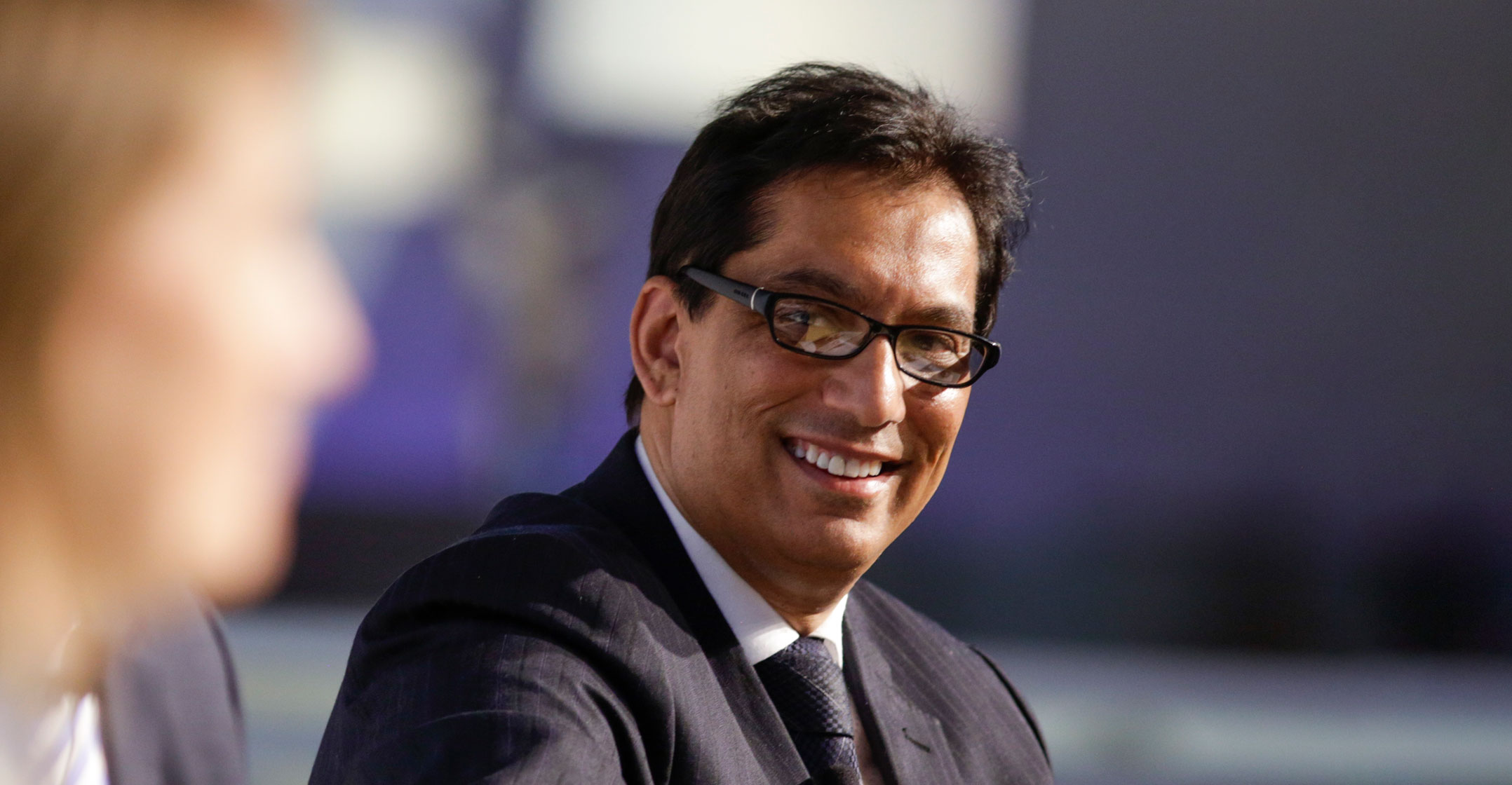 Ayo Technology Solutions has severely criticised the JSE after the Johannesburg bourse on Thursday publicly censured the company and fined it R1.5-million for material breaches of the listings requirements.
Ayo Technology Solutions has severely criticised the JSE after the Johannesburg bourse on Thursday publicly censured the company and fined it R1.5-million for material breaches of the listings requirements.
The censure and fine by the JSE – not the first for Ayo – related to various transactions and agreements between 2017 and 2019 with related parties, including Ayo’s holding company, Iqbal Survé’s African Equity Empowerment Investment Holdings (AEEI).
“These transactions did not comply with the peremptory requirements for transactions with related parties stipulated in section 10 of the listings requirements,” the JSE said in a statement issued on its stock exchange news service (Sens) on Thursday morning.
Ayo has now hit back, issuing a Sens statement of its own in which it has criticised the JSE for the public censure and questioned why it has been fined R1.5-million “given that the JSE previously fined Ayo an amount of R6.5-million … for the same alleged contraventions” of the listings requirements.
“The purpose of this statement is not to respond in detail to the censure. That is the subject of a reconsideration application which is currently pending before the Financial Services Tribunal (FST). However, Ayo considers it prudent and necessary to provide the market with additional background that places the publication of the censure in full context and will explain why Ayo is aggrieved about these developments,” it said.
According to Ayo:
- On 31 August 2022, the JSE informed the company of the bourse’s preliminary decision to impose a public censure and fine after the company allegedly failed to comply with the provisions of the listings requirements.
- Ayo responded to the JSE, disputing the findings, the sanction and the intended public censure. Ayo told the JSE it would suffer irreparable harm if the censure was published and its reconsideration application were to be successful.
- Ayo sought an undertaking from the JSE that it would not publish the sanction until the company’s application to the FST for the suspension of the sanction has been determined, failing which Ayo would institute urgent interdict proceedings against the JSE.
- On 31 October 2022, the JSE informed Ayo it was willing to provide an undertaking that it would not implement its decision (in the event it was made final) until such time as Ayo’s suspension application was determined by the FST.
- Thereafter, on 9 December 2022, Ayo filed its reconsideration and suspension applications with the FST.
“In terms of the FST’s rules and procedures, a person aggrieved by a decision of a regulator such as the JSE may make application to the FST for the reconsideration of such decision. However, the implementation of such decision is not automatically suspended while the reconsideration application is pending,” Ayo said in its statement.
“As such, it was necessary for Ayo, simultaneously with its reconsideration application, to apply to the FST for the suspension of the JSE’s decision to impose the censure and fine of R1.5-million. It is this suspension application that the FST has now not upheld. Ayo’s application for a full reconsideration of the JSE’s decision is still pending before the FST and will likely only be decided in the coming months.”
According to Ayo, the FST dismissed Ayo’s application for the suspension of the JSE’s decision on Wednesday (21 December 2022). The company’s attorneys received notification of the FST’s decision not to uphold the suspension application at 5.27pm that same day.

The company alleged the following:
- “The JSE, without notice to Ayo or our attorneys, proceeded to publish the censure at 9.12am [on Thursday], thereby effectively depriving Ayo of the opportunity fully to consider the FST’s decision and to seek legal advice in relation thereto.”
- “The JSE did so with full knowledge that Ayo’s reconsideration application is still pending with the FST.”
- “Further, the JSE, knowing that the publication of the censure is a hotly disputed issue on which Ayo would seek legal advice and would in all probability bring urgent proceedings to prevent same, clearly decided to thwart any right that Ayo may choose to exercise by proceeding to publish the censure this morning (Thursday), only hours after Ayo was notified of the FST’s decision not to uphold Ayo’s suspension application.”
- “Ayo finds the JSE’s actions extremely disappointing, given that the JSE’s investigation has spanned a period of more than three years and is still ongoing. Further, during the period of the investigation, Ayo has co-operated fully with the JSE and responded to all its enquiries and requests for information.”
The publication of the censure has caused Ayo “irreparable harm”, the company claimed in its statement. “Ayo considers the JSE’s actions to be unfortunate and contrary to the courtesy and co-operation that has existed thus far. Ayo will take legal advice and decide on the next appropriate step to take.”
In its public censure of Ayo on Thursday, the JSE said: “The listings requirements contain stringent regulations governing transactions and agreements with related parties to provide safeguards against parties that may take advantage of their positions as a related party or exert undue influence for their own benefit.”
The day after its listing on the JSE, on 22 December 2017, Ayo entered into the first of three performance management agreements (PMAs) with an asset manager called 3 Laws, in terms of which 3 Laws would manage funds invested for and on behalf of Ayo to diversify the tech company’s treasury risk function, the JSE explained.
“At the time of entering into the PMAs, the majority shareholder in 3 Laws was Sekunjalo Investment Holdings, which held 85%. [Survé-controlled] Sekunjalo Investment held 61% of AEEI, which in turn held 49% of Ayo. Therefore, 3 Laws was a related party to Ayo in terms of paragraph 10.1 of the JSE listings requirements.”
Under the PMAs, Ayo paid:
- R70-million to 3 Laws on 22 December 2017 (repaid on 22 February 2019);
- A further R400-million to 3 Laws on 5 March 2018 (repaid on 20 August 2018); and
- Another R400-million to 3 Laws on 29 November 2018 (repaid on 22 February 2019).
“The facts indicated that the funds were not invested by Ayo with 3 Laws in accordance with the terms and provisions of the PMAs and that the transfer of funds to 3 Laws therefore constituted related-party transactions in terms of the listings requirements,” the JSE said.
According to the JSE investigation:
- All funds were transferred by Ayo directly into 3 Laws’ accounts held with Nedbank and Standard Bank and not paid into a separate, segregated banking account in the name of Ayo, in conflict with the express provisions of the PMAs.
- R70-million was invested with 3 Laws in terms of the first PMA on 22 December 2017, of which R35-million was deposited into 3 Laws’ bank account and a further R35-million into the bank account of Sekunjalo Capital, on 3 Laws’ instruction.
- Ayo’s bank records show that on 31 August 2018, an amount of R400-million previously transferred to 3 Laws in terms of the second PMA was returned into Ayo’s bank account and referenced as “3 Laws Capital”. However, it was not returned to Ayo by 3 Laws but by a different entity.
- 3 Laws returned an amount of R470-million to Ayo on 22 February 2019 in terms of the first and third PMAs in two separate payments. On the same day that 3 Laws returned the R470-million to 3 Laws, 3 Laws received payments of R35-million from Africa News Agency (ANA) and R30-million from SGB Securities. The total of R470-million returned by 3 Laws to Ayo included the money received from ANA and SGB Securities on the same day, further confirming that there was no segregation of funds or accounts for purposes of Ayo’s investment. This was also a direct result of Ayo paying the funds directly into 3 Laws current bank account.
The public censure followed a decision by the JSE in 2020 to fine Ayo R6.5-million for publishing “false and misleading” financial results shortly after its December 2017 listing.
Last month, Ayo announced that it had doubled its gross dividend to 60c/share despite reporting a full-year loss that widened to R266-million. It gave no reason for the 100% increase, though thanks to Sekunjalo and AEEI’s holdings in Ayo, Survé and his companies stood to receive a healthy dividend from the ailing company, Bloomberg News reported on 30 November.
Ayo received a R4.3-billion investment at the time of its listing in December 2017 from the Public Investment Corp (PIC) – which invests pension money on behalf of South Africa’s civil servants – in a deal that was seen as grossly overvaluing the business. The PIC investment meant it attached an implied valuation to Ayo of R14.8-billion. Today, Ayo’s market has fallen to just R825-million, or 5% of the PIC’s valuation of just five years ago.
The PIC has previously alleged that its investment decision was based on misleading claims made by Ayo about the company’s financial prospects and because of meddling by former PIC head Dan Matjila. – © 2022 NewsCentral Media




